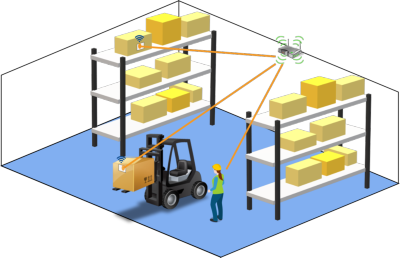Theme: | Localization/Signal Processing |
Application: | Object/people localization |
Contact Person: | |
External collabolator: | |
Intorduction: |
|
Description: | To determine a tag’s location the received signal from each antenna is sampled using a high-speed ADC and the derived samples are processed further in the digital domain. One of the sources of the complexity and cost of the system is the high resolution of the ADCs. It not only affects the costs of ADC itself but also the large word-length of samples at the output of the ADC increases the complexity of the subsequent processing units. Decreasing the resolution of the ADC can simplify the design; however, this can potentially degrade the performance of the localization. In this project, we investigate the use of single-bit quantization for direction of arrival (DoA) estimation and DoA-based localization. Particularly, we focus on the performance of common DoA estimation algorithms (e.g., traditional beamforming, MUSIC, CS-based methods) when applied to single-bit quantized data. Since quantization is a nonlinear operation, it can introduce unwanted artifacts, especially when multiple signal sources are present. Therefore, the goal of this project is to investigate the effects arising from single-bit quantization and how they can be mitigated |
Requirements: | You need MATLAB coding skills and basic knowledge of wireless communications (or you are willing to learn these). |
Additional Info |

 Radio Frequency IDentification (RFID) plays a crucial role in many logistical processes. Rather than scanning product barcodes one by one, RFID allows to wirelessly communicate unique product IDs. Over the past years this technology has found its way more and more into different warehouses and stores. A big challenge one encounters using RFID is to accurately determine the location of an RFID tag. One of the possible solutions to this problem is to determine the angle under which the tag reply has arrived at the reader antenna. This angle can be found by measuring the tag’s reply at multiple antennas and determining the phase difference between the signals arriving at the antennas.
Radio Frequency IDentification (RFID) plays a crucial role in many logistical processes. Rather than scanning product barcodes one by one, RFID allows to wirelessly communicate unique product IDs. Over the past years this technology has found its way more and more into different warehouses and stores. A big challenge one encounters using RFID is to accurately determine the location of an RFID tag. One of the possible solutions to this problem is to determine the angle under which the tag reply has arrived at the reader antenna. This angle can be found by measuring the tag’s reply at multiple antennas and determining the phase difference between the signals arriving at the antennas.